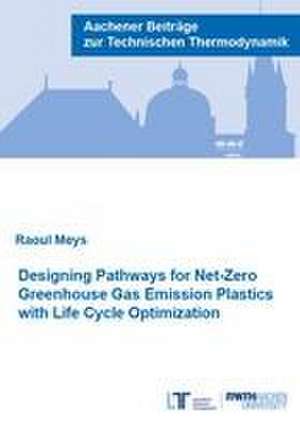Designing Pathways for Net-Zero Greenhouse Gas Emission Plastics with Life Cycle Optimization: Aachener Beiträge zur Technischen Thermodynamik, cartea 39
Autor Raoul Meysen Limba Engleză Paperback – 27 noi 2022
Preț: 265.20 lei
Nou
Puncte Express: 398
Preț estimativ în valută:
50.75€ • 55.30$ • 42.76£
50.75€ • 55.30$ • 42.76£
Carte disponibilă
Livrare economică 29 martie-04 aprilie
Livrare express 19-25 martie pentru 31.67 lei
Preluare comenzi: 021 569.72.76
Specificații
ISBN-13: 9783958864634
ISBN-10: 3958864635
Pagini: 286
Dimensiuni: 146 x 208 x 19 mm
Greutate: 0.37 kg
Ediția:Nouă
Editura: Verlagsgruppe Mainz
Seria Aachener Beiträge zur Technischen Thermodynamik
ISBN-10: 3958864635
Pagini: 286
Dimensiuni: 146 x 208 x 19 mm
Greutate: 0.37 kg
Ediția:Nouă
Editura: Verlagsgruppe Mainz
Seria Aachener Beiträge zur Technischen Thermodynamik


